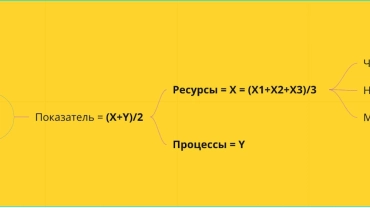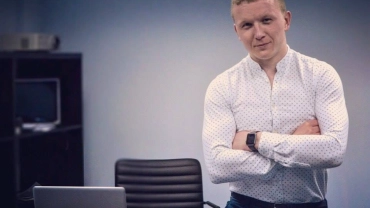Caught my brain somehow, having long brewed this topic in my head and tried to understand what is wrong with this result, which we are so fond of celebrating among people.
What is being observed. Those who show up in a difficult situation are marked by a large mass of attention and recognition from their surroundings, which adds to the pleasure at the level of hormones and authority among other people.
The key here is to show up in a difficult situation…
Even in business. We love mass events where various people speak up and talk about how heroically their team handled something, but we don't know those whose team didn't even load up on problems. I notice these patterns, and I think society is so formed that they feed themselves on various levels of problems in order to solve them, and this is celebrated by others and adds to people's credibility.
I'm not against heroic acts now, because there are a lot of different situations and they need to be dealt with by someone. There needs to be someone who is willing to take responsibility and risks.
I just don't like the fact that we heavily reward those who decide rather than those who provide…
What is foreseen and did not happen people do not perceive, because it did not happen. And perhaps it wouldn't have happened, what is there to appreciate?
I've been thinking about the question for a while, observing patterns, and I've found a lot of different results in the world, which I've gathered into an understanding. And I'm ready to share my observations.
I divide people in this regard into two categories (see extremes for more understanding of situations): post-mortem and pre-mortem.
I explain who both of these options are.
Post-mortem. When a terrible situation happens, a disaster, for example. A group of people come in, pick up the pieces and try to understand the causes so they can fix it in the next iterations. And for something global, they just study the data and think about how people can live with it now. Situations are different. From a child falling down a slide and breaking his arm, to melting Greenland glaciers and rising water in the world's oceans. These are all situations which have causes.
Pre-mortem. They are harder because you have to model a possible situation without its origin from what the laws of physics or human nature tell us. So there is a lot more data, but not all of it is needed in a formula to understand the truth, so we have to «run through» a mass of probabilities and by the supposed point«» some of it might be right and the situation will not happen.
The probability of hitting «the dot» in this method depends on the amount of intelligence and the structures which are applied in the simulation.
Now I want you to imagine how much data you have to add up to figure out that a child could fall down a slide and break his arm?
Maybe we should buy sneakers that have 20% more grip than others…
Or that the child, not understanding the physics of the prop's behavior, will give it an extra load and fall overboard. So it's better to just show him beforehand that it's a support and when you press it, it behaves like this. You fall down, maybe break your arm or just get scared, nobody knows.
The curse of people like me is constantly working your brain, analyzing an insane amount of data, modeling situations over time, and constantly doing things you weren't asked to do.
It's the same story in business. You don't have to worry about modeling, you just run along and solve all the «fractures» and «scares» on the way. You will have to spend a lot of energy, but it will be spectacular and you will have something to tell others.
And you can create a system that provides for thousands of situations and directs the results in the necessary direction for the purpose or reduces the probability of the origin of problems.
I sometimes see a picture of people who have +/- 20 people in their company, living in a constant solution of some tasks of different scale, all day long on phone calls, their calendar is full of events for a week and a half ahead. From the outside, they seem like terminators, which makes other people excited, because this is a«real entrepreneu», as many cool people told us from the stage.
I looked at myself from the outside and was a little embarrassed by their background before, because my calendar is empty. I sit all day and poke my head in the dot, creating chaos with my jokes, disturbing others. And when no one is around, I flip through the company's angle management system, live through situations that haven't happened a thousand times in my head, straining people to do things which don't cause any «wow effect» I just endlessly correct formulas in tables and think over who to fire next, or who to «cure» now, because they are about to get sick.
I spend all day making hypotheses and making changes to the formula, controlling the workload on people and the system. A kind of architect in the company.
It's boring to the point of insanity. Now we are 46 people, by the end of the year the plan is to have 70, and the workload on me only decreases.
It pissed me off at first, until I put it all together and realized that these heroic entrepreneurs who «kill the dragon» three times a day have problems.
Guys, you're early on in your decision-making and collecting problem-solving rewards. Try to multiply your company at least a few times. Live it out in your head and realize that somewhere in the beginning there was a mistake and it would be better to reassemble everything to go to prevention than problem-solving.
I then looked more broadly and saw in the environment a lot of normal people (the bulk) aren't interested in watching people talking about creating something which tries to prevent something that hasn't happened yet. Who are all these scientists? Boring people living poor lives (think some of us).
And in fact, they're just making sure that something doesn't happen. Some people really go crazy with modeling, trying to figure out so that something can be predicted and it doesn't happen. And if it doesn't happen, people won't even notice that person. And how do you explain something that didn't happen to the masses? No one knows yet, because it didn't happen and we don't want to believe in abstractions.
When I realized this, I appreciated even more the decisions we make in running our own company. I'd rather live a boring life and build a company of 10,000 people which will be of great benefit to humanity (even though no one will ever notice us) than to be a mega-visible person wearing medals.
Well, once again, to say that we are doing something now that will probably shift very difficult times for humanity by a few decades, I don't think it's necessary. It still hasn't happened yet, and as it will, and if it does, we'll figure it out somehow…
It's hard to teach yourself to get high from creating something that prevents something that hasn't happened yet. And maybe it won't happen.
But I'd rather be wrong in my assumptions that it will happen and spend a lot of money on preventing the situation than to wait sitting flat out for something that had better never happen. And the money I don't spend won't have any value in the situation.
We have created so much already, which at the time of production revealed new insights and increased the probabilities of our assumptions.
And I am willing, without getting a medal for anything, to spend a lifetime making products aimed at improving the environment we pass on to our children.
And what we're doing is not a «slide with weak supports where my kid might fall», but a climate that changes and it has tons of reasons that blow your mind from modeling. But I haven't yet seen solutions which are highly likely to eliminate that probability.
And no Forbes list is going to fix it...
The purpose of this article was to make you aware of the importance of anticipating problems and the importance of small fixes to the system. This will combine to reduce the likelihood of something coming up that will have to be solved at great cost.
*facebook post



